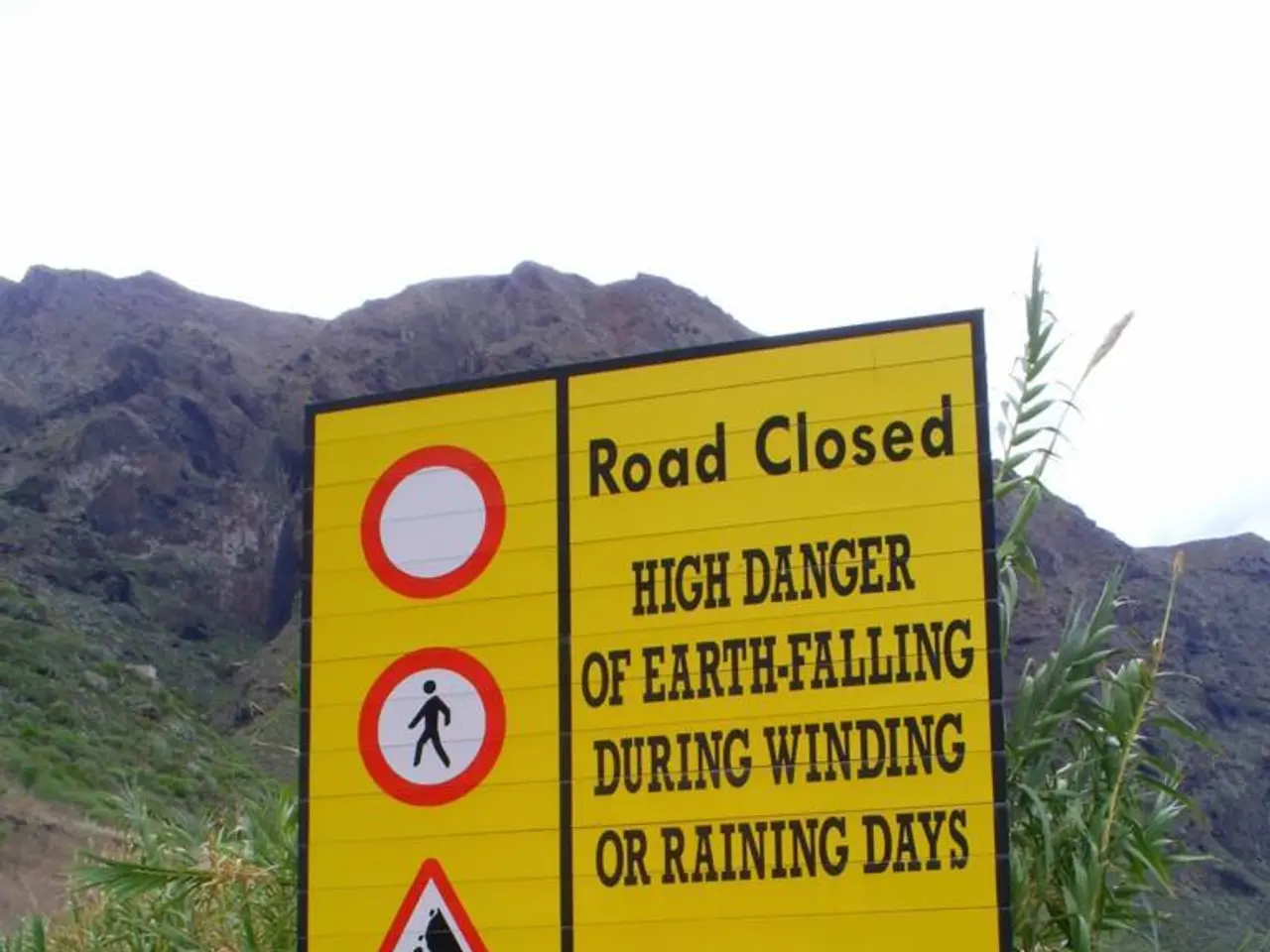Controversial German signs in South Tyrol causing disagreements - Controversy brews over displays of German signs in the South Tyrolean region
In the picturesque mountains of South Tyrol, a long-standing controversy has resurfaced regarding the use of language on signs. This debate, deeply rooted in the region's complex historical and cultural context, revolves around the predominance of German signs, a language spoken by about 57.6% of the population[1].
Proposed Changes to Mountain Hut Names
Ingrid Beikircher, vice-president of the South Tyrol Alpine Association (AVS), has proposed a change in the naming of mountain huts. She suggests that they should be named after their location or home mountain in the future[2]. This proposal does not aim to displace German names but aims to establish a more traceable, bilingual naming system for these huts[3].
The Lack of Italian Language Signage
Concerns have been raised about the lack of Italian language signage in South Tyrol, particularly in regions like the Pustertal and Ritten, which attract numerous Italian visitors[4][5]. Carlo Zanella, the president of the Italian Alpine Club CAI Alto Adige, has been vocal about this issue, criticising the trend in the local newspaper "Corriere dell'Alto Adige." He argues that the lack of bilingual signage in problem areas can be dangerous for Italian tourists[6].
South Tyrol's Historical Background
South Tyrol, or Südtirol in German, has a rich and complex history. It was previously part of the Habsburg monarchy until it was annexed by Italy in 1919[7]. After World War II, South Tyrol was granted significant autonomy by Italy, which included provisions for linguistic equality, allowing both German and Italian to be used in public contexts[1]. However, tensions over language rights, particularly in signage, have persisted.
Historical Context
Following its annexation by Italy, the fascist regime launched an Italianization campaign in South Tyrol. This involved banning the German language from public services and schools, promoting Italian-speaking immigrants, and suppressing German culture[1]. These policies created deep-seated resentment among the German-speaking population. Post-WWII autonomy granted South Tyrol linguistic equality, but tensions over language rights, particularly in signage, have persisted.
Cultural Identity and Language Rights
The German-speaking community values the use of their language on signs as crucial for preserving their cultural identity and honouring their historical roots[10]. This perspective clashes with those who view it as a challenge to Italian sovereignty. Italian nationalists or visitors argue that the prevalence of German signage undermines Italy's national identity[9].
The Future of Signage in South Tyrol
As the debate over signage in South Tyrol continues, it serves as a reminder of the region's complex cultural and historical context. Despite the region's autonomy and linguistic equality provisions, these tensions continue to simmer, reflecting deeper societal and political divisions. The proposed changes by the AVS and the advocacy of Carlo Zanella for a "fair but reasonable place name policy" may help alleviate some of these tensions, ensuring that all visitors feel at home in the beautiful mountains of South Tyrol.
[1] South Tyrol Statistics [2] AVS proposes new mountain hut naming system [3] AVS proposal aims for bilingual mountain hut names [4] Pustertal and Ritten attract Italian visitors but lack bilingual signage [5] Zanella criticizes monolingual German signage in South Tyrol [6] Zanella warns of danger for Italian tourists due to lack of bilingual signage [7] South Tyrol's historical annexation from Austria-Hungary [8] Old conflict reignited over German signs in South Tyrol's mountains [9] Controversy over German signs in South Tyrol [10] German hikers find comfort in familiar signs in South Tyrol
- "The ongoing debate about signage in South Tyrol's mountains, centered on the predominance of German signs, highlights the region's complex cultural and historical context, vividly showcasing policy-and-legislation issues, politics, and general news that significantly impact the community."
- "In the context of South Tyrol's historical background, the proposed changes to mountain hut names by Ingrid Beikircher of the AVS, aiming for bilingual naming systems, is a step towards addressing concerns raised by the Italian community about the lack of Italian language signage, contributing to policy-and-legislation discussions and general news related to cultural identity and language rights."






